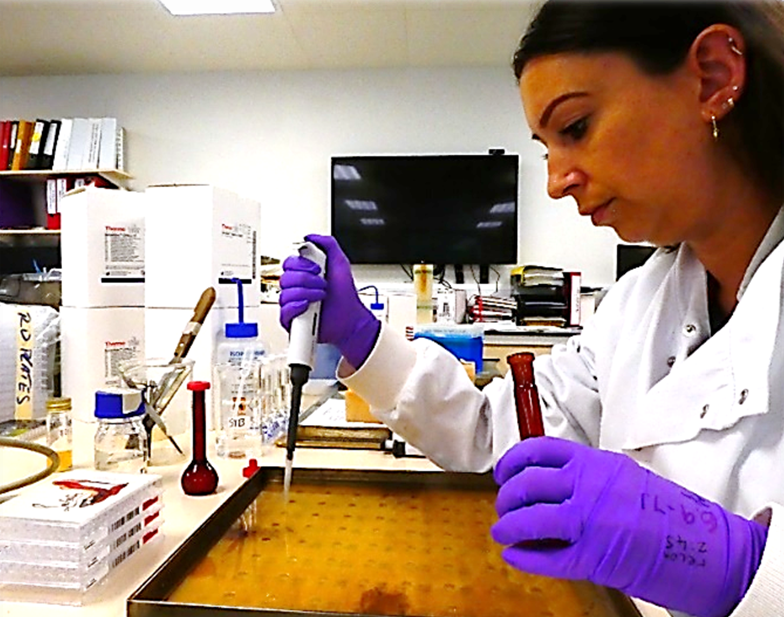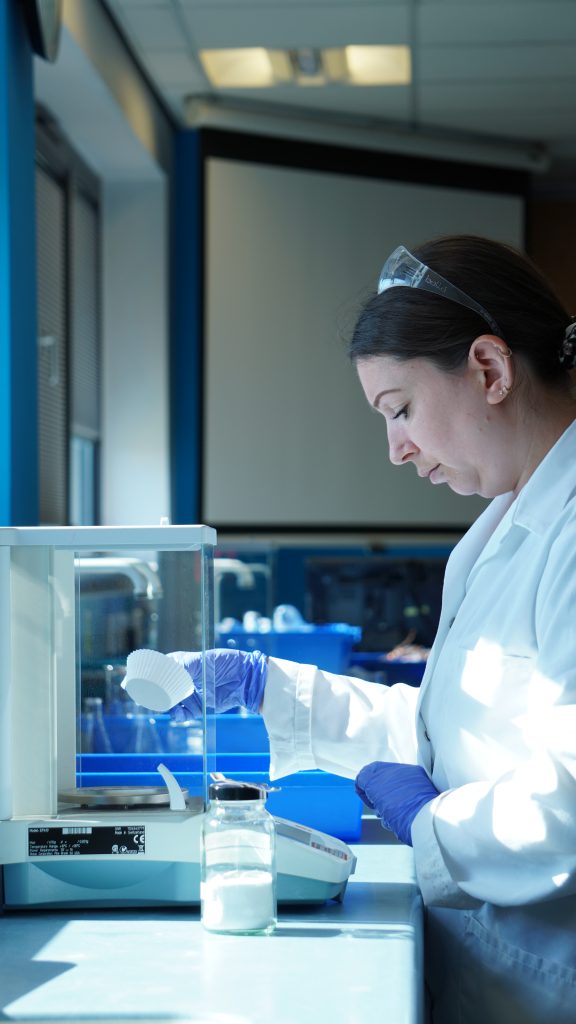Exploring Careers in Biology: Kimberley’s Work in Tackling Antimicrobial Resistance

Biology isn’t just about understanding life, it’s about protecting it. One of the biggest global challenges scientists are working on right now is antimicrobial resistance (AMR), where bacteria stop responding to the medicines designed to kill them. It’s a huge threat to healthcare around the world, and biology careers are key to solving it.
As part of National Biology Week, we spoke to Kimberley Elliot, a Laboratory Technician apprentice working in this vital area. Her work focuses on testing how bacteria respond to treatments and helping doctors choose the right medicines for patients.
Tell us about your role and what you do.
I work in Antimicrobial Susceptibility Testing, looking for the minimum inhibitory concentration of antimicrobics against bacteria. This is important to allow clinicians to treat patients with targeted therapy, rather than using broad-spectrum antibiotics, which don’t always work.
What those terms mean:
- Antimicrobial susceptibility testing (AST): A process to check which medicines stop or kill bacteria.
- Minimum inhibitory concentration (MIC): The smallest amount of a drug needed to stop bacteria growing.
- Antimicrobics: Substances (like antibiotics) that kill or slow down microorganisms such as bacteria.
- Targeted therapy: Choosing a specific drug to treat a specific type of bacteria.
- Broad-spectrum antibiotics: Drugs that act on many types of bacteria but might not always be effective against the exact one causing an infection.

Why is this work important?
AST is key to fighting antimicrobial resistance (AMR). AMR occurs naturally but is also caused by the misuse and overuse of antibiotics in humans and animals.
Explained:
- Antimicrobial resistance (AMR): When bacteria change over time so that medicines no longer work against them. Overusing antibiotics, like taking them when they’re not needed, speeds this up.
What are the risks if we don’t tackle AMR?
Drug resistance puts modern medicine at risk, making infections harder to treat and increasing risks in medical procedures, due to MRSA and other nosocomial infections, often acquired via surgeries and indwelling devices like catheters and prosthetics.
Explained:
- MRSA: A type of bacteria that’s resistant to many antibiotics, often found in hospitals.
- Nosocomial infections: Infections caught in healthcare settings, like hospitals.
- Indwelling devices: Equipment that stays inside the body for a period of time, such as catheters (tubes for draining fluids) or prosthetics (artificial body parts).
AMR is one of the biggest threats to global health. According to the World Health Organisation, bacterial AMR was directly responsible for 1.27 million deaths in 2019 and contributed to nearly 5 million deaths worldwide.
Kimberley’s work shows how biology careers can make a real difference, from helping doctors treat infections more effectively to protecting the future of medicine itself.
Want to explore how biology could shape your future? Discover more real careers here.